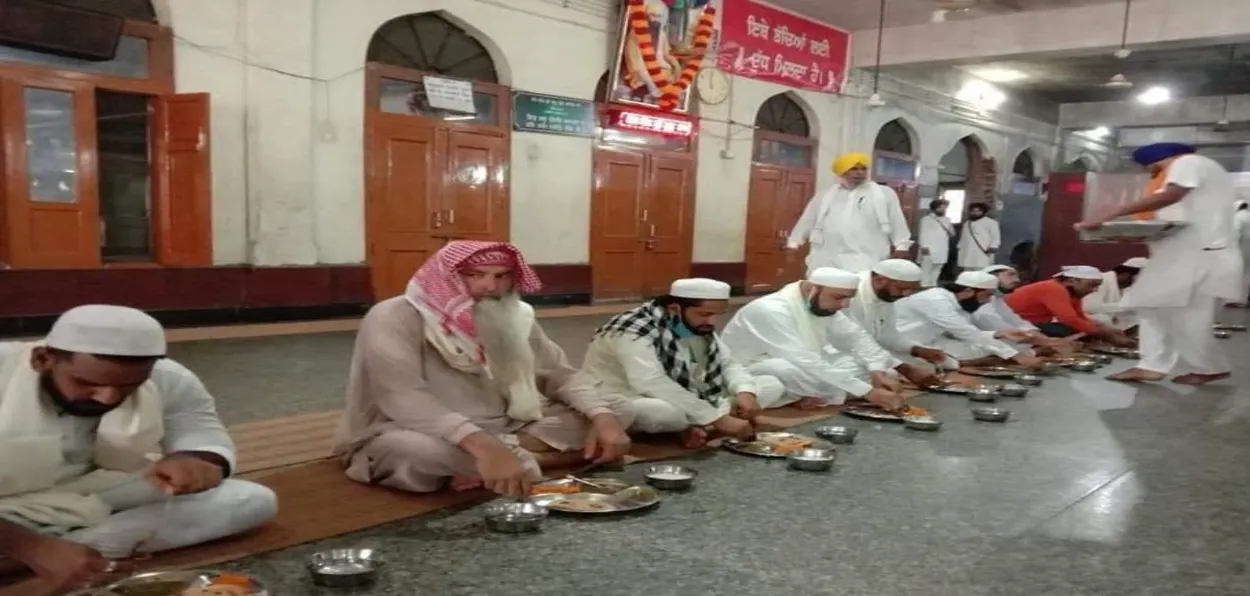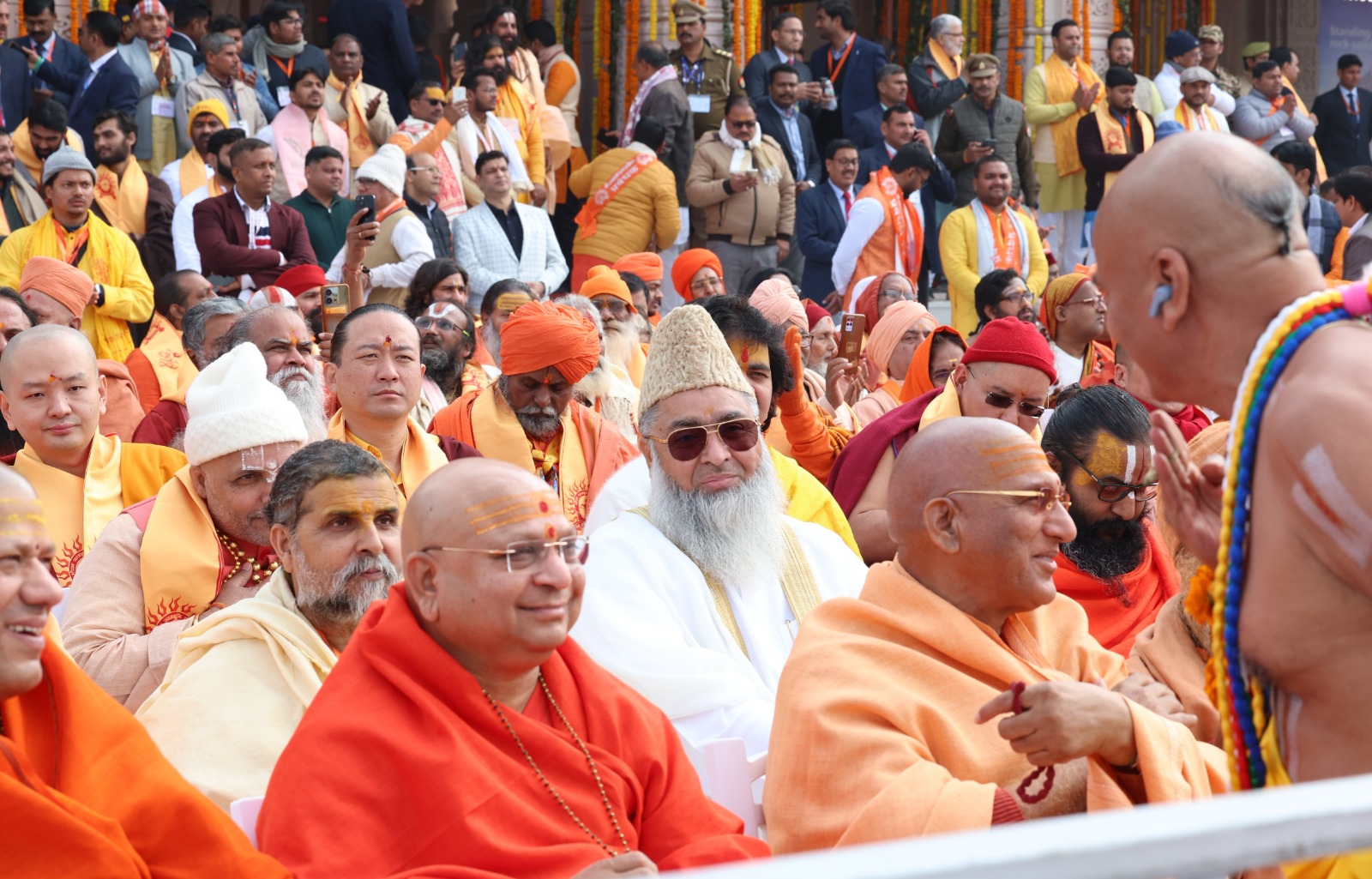
Amir Suhail Wani
From time immemorial, India has been home to different religious communities, ethnic and linguistic groups, and tribes. It’s no exaggeration to say that India represents the supreme example of “unity in diversity”, in which different religions fit like flowers in the garland. All the religions have contributed, in their own right, to the national integrity and the growth of India as one vast and beautiful nation.
India is home to all the major religions of the world. It also accommodated minor religions in large numbers and all the religious traditions have a unique position, distinct history, and contribution to making India the most diverse country in the world. Religion has played a major role in nation-building in India, as it has brought people from different regions together into the unifying spirit of fellow feeling.
For a country like India with a lot of religious diversity, this unification affected by religion has been essential and valuable. Religious festivals have also been great nation-builders and have unified people like nothing else. People participate with equal fervour in festivals like Eid, Baisakhi, Gurpurab and Christmas and this has been extremely vital in ensuring unity in a country like India, which is characterized by diversity at each level. At times, religious leaders like Gandhi, Abul Kalam, and others have won love and admiration from people across religions and these leaders have also played an important role in nation-building and in bringing people together.
 Leaders of all religions attending Pran Pratishthta of Ram, Mandir in Ayodhya
Leaders of all religions attending Pran Pratishthta of Ram, Mandir in Ayodhya
Religious places like the Dargah of Nizamuddin Auliya in Delhi, the Golden Temple of Amritsar, and the Temple at the Mount of Shankaracharya in Srinagar, Kashmir have also pulled together people from different religions and thereby acted as incredible agents of national integration. It is not only the Sikhs, but the Muslims, Christians, and Hindus alike who pay homage at places like the Golden Temple and this binds people from different religions together.
Religions have contributed to the cause of nation-building not only by using initiatives like philanthropy, helping the destitute, and doing constructive work, but patriotism is built into the structure of religions like Islam, Christianity, Hinduism, and others.
Islam exhorts its followers to love their mother country and enunciates the love for one’s country as part of one’s faith. Likewise, Christianity upholds the values of patriotism and CS Lewis goes on to say “The rightly ordered love of patriotism points us to ultimate loves, including the love of God”. Likewise, Muslim saints and sages, throughout the ages, taught the lessons of brotherhood and love for one another. This contributed significantly to the patriotic feelings and the cause of nation-building. These Sufi masters also taught people to look beyond the apparent differences of creed and religion and to focus on the underlying unity of humanity. This had a tremendous impact on the cultivation of love, mutual harmony, and unity. By opening their shrines and langars (community kitchesn) for one and all, these Sufi saints also affected in people the feeling of mutual bonding and unshakable faith in humanity.
Islam also diffuses teachings like “No compulsion in religion” and “to each community his religion” in its followers and this cultivates the spirit of respect for other religions and love for one’s country. In his teachings, the Prophet of Islam laid the foundation of a duty-conscious society, not a rights-conscious society. The Prophet said, “A believer should be duty conscious, and as far as his rights are concerned, he should ask of them from God.” The best society is a duty-conscious society. The duty of one person is the right of another. If each one of us took care of our duties, the rights of all would be taken care of. If each one of us were to be only demanding and protesting for the fulfillment of our rights, nothing would be accomplished. Performing one’s duties instead of demanding rights, is the strongest foundation for building a prosperous nation.
A Muslim man reciting Sukhmani Sahib, a Sikh scripture at Golden temple (X)
A number of our great writers like Swami Vivekananda, Sri Aurobindo, Abul Kalam Azad, Jawahar lal Nehru, and Mahatma Gandhi wrote on the themes of patriotism, fellow-feeling, and nation-building. Though they were deeply rooted in their respective religious traditions they were supremely successful in reconciling religion with patriotism and each of them played a pivotal role in shaping modern India and unifying its people.
Unfortunately, these writers are no longer taught in universities and other institutions of higher learning. This is impeding the path of constructive patriotism and positive nationalism. Nation-building in modern India must also take into account the importance of inter-faith dialogue and inter-religious harmony. Many times, a schism between religions escalates to major incidents of violence and to avoid such episodes, organizations and individuals must come together, to better understand each other’s religion, and this understanding will pave the way for harmony and national peace.
The rise of fundamentalism in different religions is a major threat to the process of nation-building and therefore these movements of extremism and secessionism, wherever they exist, must be dealt with an iron fist and given a befitting reply. The forces of religious fanaticism shall not be allowed to play with the fundamental postulate of national unity and integrity and the peace-loving and harmonious versions of religions shall be supported by the state at all possible levels.
ALSO READ: Amir Khurshow's naat in praise of the Prophet continues to be sung in Bengal's shrines
Historically, religions like Islam, Christianity, Sikhism, Zoroastrianism, Jainism, Judaism, and others have contributed immensely in their respective ways to the glory of India. In modern times, the challenge has been to mitigate the threat of fundamentalism and radicalism and to harness the energies of religion to the cause of nation-building and patriotic spirit. This places great responsibility on the shoulders of religious leaders from the local Mullahs/Pundits to the national level leaders to steer their communities on the path of unity, harmony, nation-building, and patriotism. India has been recognized as the crown of religious pluralism and diversity and it is important, more than ever, that India leads the world and shows it a path to unity in diversity. This is possible when each of us cultivates the deepest feelings of nationhood and selflessness and places motherland and patriotism ahead of everything else.
